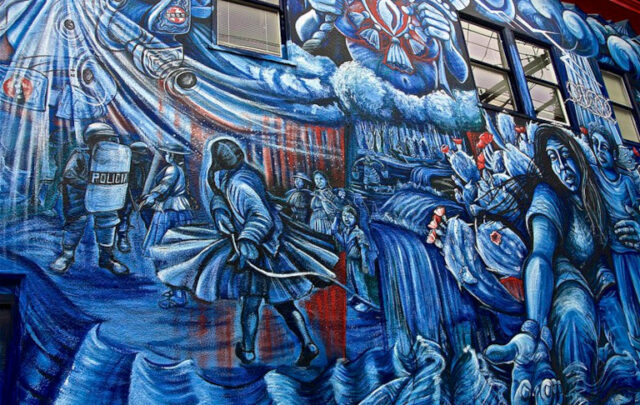Christopher Lyon of the Centre for Environmental Change and Human Resilience at the University of Dundee is co-author of the chapter ‘Transition in Peterborough, Canada’ in the newly published ‘Resilience, Community Action and Societal Transformation’. We asked him a few questions about his contribution to the book.
1. Brief Introduction of your Work
My work explores the social dimensions of resilience, adaptation and transformation. To date I have mostly focused on community resilience and the cultural and other processes that communities use to navigate challenge and change. I’m very interested in how people and groups understand and navigate a reality that is complex, evolving and harbours unparalleled challenges for the future of humanity.
2. What is your understanding of resilience?
For me, resilience is much more complicated than the capacity to ‘bounce back’ from or respond to changes or ‘disturbances’ or other similar definitions. To be useful, resilience must be about what people are doing with the idea, how they know it and apply it, and what happens when they do.
In this sense, resilience is about knowing the constantly evolving local and global events or issues that work for or against the equitable sustainability of the community, organisation, group or even individual. How well does a community understand the issues facing it as a community? How wisely do people or a community know and use available resources and skills to address challenges meaningfully? For me, resilience isn’t a state or outcome that happens with the right tick-box formula to be left on the shelf for a government or some other organisation to do. Rather, I see it as the ongoing practice of adaptive awareness and action resulting from a collective active engagement with a constantly evolving world.

3. What can communities do to strengthen their resilience?
Communities can cultivate an open-minded participatory and innovative culture of learning and engagement with the local and global issues challenging them now and in the near and distant future. The state-of-the-science says humanity, let alone communities, face an environment and energy challenge of a scale and scope with no historic or even prehistoric precedent.
This is a whole-of-society problem that doesn’t easily translate into normal politics or ideas about the world, such as left and right-wing worldviews. Therefore, it’s important for all parts of a community, from members of the public to the public, private, charity organisations in a community, understand these challenges and how they affect the community in order to work out collective strategies to address them.

4. How can Transition Initiatives contribute to systemic change?
Transition Initiatives serve as a global-local movement of real examples and experiments with the kinds of ideas and practices that contribute to systemic change. These initiatives demonstrate real alternatives to the status quo that are built on an active engagement with the major challenges facing the world. As such, together they serve as a resource – a body of innovative experience-driven knowledge and examples – for others to draw on as they look for novel solutions.
5. What makes you hope that we can change towards a more resilient and sustainable society?
Need-driven human tenacity, curiosity, and creativity: we tend to do very well when we put our collective mind toward solving a problem we need to solve to survive and thrive.






